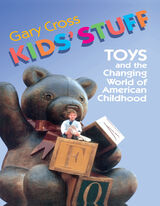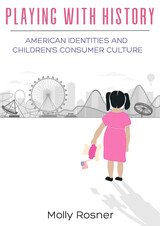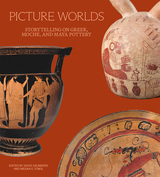
To sort out who's who and what's what in the enchanting, vexing world of Barbies® and Ninja Turtles®, Tinkertoys® and teddy bears, is to begin to see what's become of childhood in America. It is this changing world, and what it unveils about our values, that Gary Cross explores in Kids' Stuff, a revealing look into the meaning of American toys through this century.
Early in the 1900s toys reflected parents' ideas about children and their futures. Erector sets introduced boys to a realm of business and technology, while baby dolls anticipated motherhood and building blocks honed the fine motor skills of the youngest children. Kids' Stuff chronicles the transformation that occurred as the interests and intentions of parents, children, and the toy industry gradually diverged--starting in the 1930s when toymakers, marketing playthings inspired by popular favorites like Shirley Temple and Buck Rogers, began to appeal directly to the young. TV advertising, blockbuster films like Star Wars®, and Saturday morning cartoons exploited their youthful audience in new and audacious ways. Meanwhile, powerful social and economic forces were transforming the nature of play in American society. Cross offers a richly textured account of a culture in which erector sets and baby dolls are no longer alone in preparing children for the future, and in which the toys that now crowd the racks are as perplexing for parents as they are beguiling for little boys and girls. Whether we want our children to be high achievers in a competitive world or playful and free from the worries of adult life, the toy store confronts us with many choices.
What does the endless array of action figures and fashion dolls mean? Are children--or parents--the dupes of the film, television, and toy industries, with their latest fads and fantasies? What does this say about our time, and what does it bode for our future? Tapping a vein of rich cultural history, Kids' Stuff exposes the serious business behind a century of playthings.

READERS
Browse our collection.
PUBLISHERS
See BiblioVault's publisher services.
STUDENT SERVICES
Files for college accessibility offices.
UChicago Accessibility Resources
home | accessibility | search | about | contact us
BiblioVault ® 2001 - 2024
The University of Chicago Press









